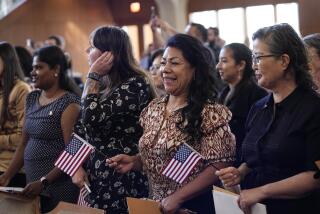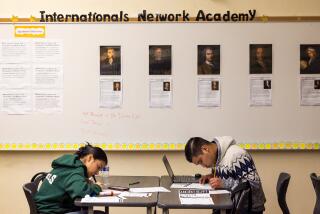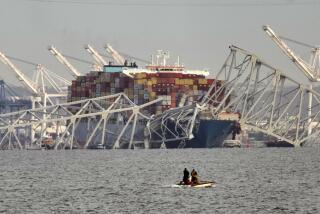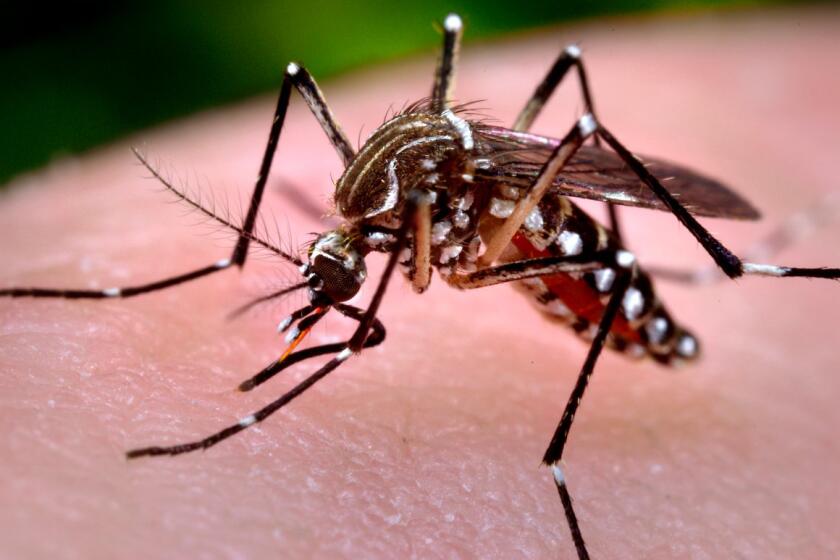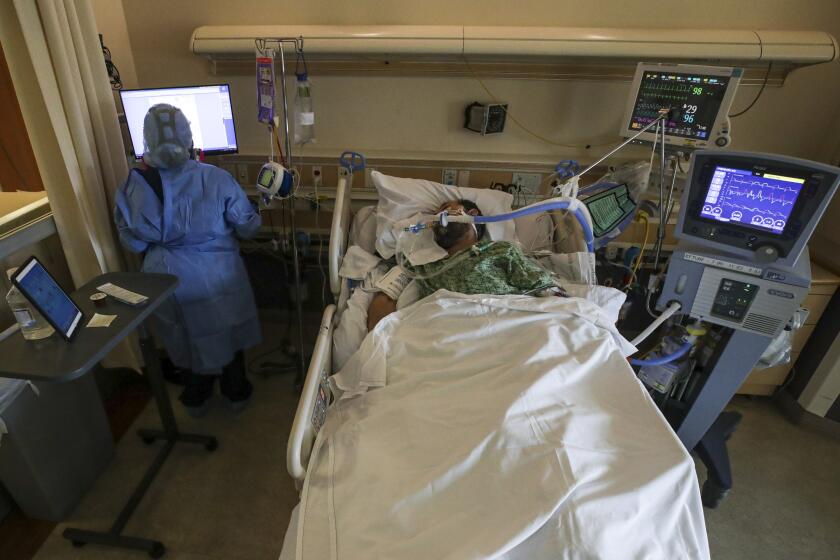Opinion: Our lives depend on immigrants to get us through the coronavirus crisis
As the COVID-19 pandemic continues to roar across the country, it’s worth noting that at least one in six (some estimates put it as high as one in four) of our healthcare professionals were born in other countries, then moved to the U.S. to live, work and raise families.
You know — immigrants.
They play such a significant role in healthcare, especially in immigrant-heavy states such as California, New York and Texas, that it’s hard to imagine what kind of shape the U.S. healthcare system would be in were it not for their work. Yet this is the very group of people whose ranks the Trump administration has been working so obsessively to keep from growing — whether they arrive legally or otherwise.
Using 2015 American Community Survey data, the Migration Policy Institute two years ago came up with the one-in-six proportion, but also noted that more than one-quarter of doctors and surgeons in the U.S. were immigrants, a share that varies widely by state.
The COVID-19 pandemic will no doubt have a huge impact on the 2020 presidential election. But to whose advantage?
Here in California, for instance, about one-third of doctors and surgeons are foreign-born. And about one-quarter of the nation’s nursing, psychiatric and home health aides are immigrants. They mainly arrived from Asia.
Notably, about 203,000 immigrants with protections under the Obama-era Deferred Action for Childhood Arrivals program work in healthcare. The Trump administration has sought to kill the deferrals and deport more than 800,000 people who have lived in the U.S. without permission after being brought here as children. The Supreme Court is expected to rule before its term ends in June on whether the program can continue.
But it’s clear that without immigrants our healthcare system would be significantly compromised. There’s nothing quite like a medical crisis to bring home how important and integral immigrants are to our daily lives.
Or to point out some of the weaknesses of national and state policies and programs.
Even before this pandemic, experts were warning of a looming shortage of healthcare professionals, driven in part by the aging of the baby boomer generation. As more members of that generation slide into retirement years, where demand for healthcare increases, so, too, do many baby boomer medical professionals.
The Association of American Medical Colleges reported last year that while the nation’s population was expected to grow more than 10% by 2032, the number of people age 65 or older would increase 48%. About one-third of current doctors will be over 65 in the next decade, and many are retiring. Other reports show similar tensions in the supply of and demand for registered nurses.
It’s the law: No face mask, no service. No kidding.
Yet a pool of potential workers in those fields remains largely untapped: foreign-born and foreign-trained medical workers, who face hurdles obtaining visas and, once here, clearing state-level education and training standards before receiving licenses to practice (it’s a complicated mess; here‘s some background). Not only could they be important to the future delivery of healthcare, but if we had a more reasonable approach now, we’d also have more medical experts available in the current crisis.
The Times editorial board pointed out on Sunday that the COVID-19 pandemic caught the government by surprise (it shouldn’t have) but also exposed weaknesses in our social safety net, such as lack of paid sick time for low-wage workers and an unemployment system that could be reconfigured to keep workers attached to their jobs, allowing businesses to ramp back up more quickly as the economy recovers.
And the outbreak has spotlighted already-known problems with the delivery of healthcare. Moving forward, we need to find a way to better incorporate medical personnel trained overseas into the American system.
And we need an administration that understands and appreciates the importance of immigration to the nation’s economic future, rather than one that sees immigrants as a threat.
More to Read
A cure for the common opinion
Get thought-provoking perspectives with our weekly newsletter.
You may occasionally receive promotional content from the Los Angeles Times.
